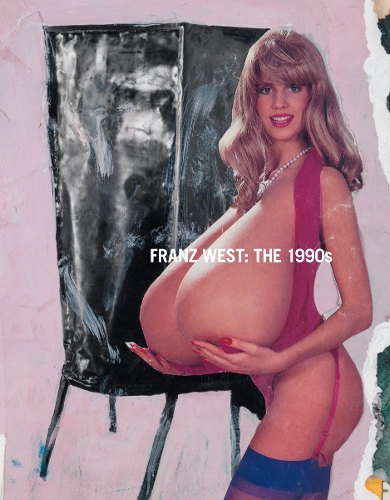
Franz West: The 1990s
(Hardback)
Publishing Details
Franz West: The 1990s
By (Author) Veit Loers
By (author) Bernhard Riff
David Zwirner
David Zwirner
28th October 2004
30th June 2016
United States
Classifications
General
Non Fiction
Individual artists, art monographs
709.2
Physical Properties
Hardback
140
Width 228mm, Height 292mm
950g
Description
Emerging in the early 1970s, Austrian artist Franz West (1947-2012) developed a unique aesthetic that engaged equally high and low reference points and often privileged social interaction as an intrinsic component of his work. By playfully manipulating everyday materials and imagery in novel ways, he created objects that serve to redefine art as a social experience, calling attention to the way in which art is presented to the public, and how viewers interact with works of art and with each other. The 1990s proved critical in the development of the idiosyncratic style for which West is still known today. Key innovations from this period - which included the addition of exuberant color to his papier-mache forms, the incorporation of furniture both as art object and as social incubator, and the inclusion of work by other artists in his own installations-resulted in dynamic, frequently interactive installations that helped to redefine the possibilities of sculpture and the ways in which art is experienced. Published by David Zwirner Books on the occasion of the gallery's 2014 exhibition, this fully illustrated publication will give an in-depth overview of this decade, arguably the most important of the artist's lengthy career, and will feature essays by noted West scholars Eva Badura-Triska and Veit Loers.
Reviews
"We live in Westworld. The artist's lump, informal, pomposity-puncturing objects set the tone for a huge amount of recent art production."--Martin Herbert "Artreview"
"West's dynamic work challenges traditional approaches to sculptural designs, functions, and displays, and continues to inspire artists."--Emory Lopiccolo "Whitewall"
Franz West "was the most loved and lovable of Austrian artists. Variously described as a prankster, a mischief-maker and a joke, he was above all engaging..."--Adrian Hamilton "The Independent"
Franz West's work is "nutty, subversive and intriguing."--Alice Rawsthorn "The New York Times"
Author Bio
Franz West (1947-2012) began exhibiting his work in the 1970s and gained international recognition in the 1980s, with significant shows at such venues as the Neue Galerie am Landesmuseum Joanneum, Graz; Secession, Vienna (both 1986); Skulptur. Projekte in Mnster (1987); Kunsthalle Bern (1988); and the Institute for Contemporary Art, PS1, Long Island City, New York (1989). In the 1990s, the artist's work was presented at the Austrian Pavilion of the 44th Venice Biennale (1990); documenta IX, Kassel (1992); The Museum of Contemporary Art, Los Angeles; Dia Center for the Arts, New York (both 1994); and the Stdtisches Museum Abteiberg, Mnchengladbach (1996). A major, mid-career retrospective, Franz West, Proforma, was organized by the Museum moderner Kunst Stiftung Ludwig (MUMOK), Vienna in 1996 (it traveled to the Kunsthalle Basel; Rijksmuseum Krller-Muller, Otterlo; Nrondi Galerie, Prague; Muzeum Sztuki w Lodzi, Lodz). The Museo Nacional Centro de Arte Reina Sofa, Madrid presented the traveling survey Franz West: In & Out (2000-2001).
Eva Badura-Triska is an art historian and curator at the Museum moderner Kunst Stiftung Ludwig (mumok), Vienna. She is the author of numerous publications on modern and contemporary art, with a focus on Vienna Actionism, Franz West, and Heimo Zobernig. Badura-Triska curated West's first retrospective exhibition Franz West, Proforma (1996). She also curated West's first major posthumous show Where is my Eight (2013). Since 1999, she has served as general secretary of the Franz West Archive.
Veit Loers was director of the Stdtisches Museum Abteiberg in Mnchengladbach from 1995 to 2003. In 1996, he organized a solo exhibition of Franz West's work, Gelegentliches. Since his early retirement in 2003, Loers has worked as an independent curator and author. In 2009, he edited Franz West for the Friedrich Christian Flick Collection. Loers has also published several essays on artists and art theory.
Bernhard Riff is the cofounder of Synema (Institute for Film Theory) in Vienna and has edited and contributed to a number of books. Since 1987, he has been making videos on art and artists, and in 1995, he founded his own video studio in Vienna. Beginning in 1989, Riff collaborated extensively with Franz West-their video works together include Investigations of American Art (1992), Otium (1998), and Thoughts for a New Art for the Homeland (2000).
